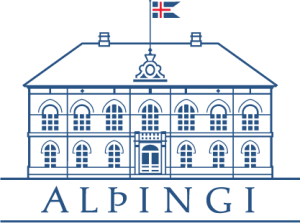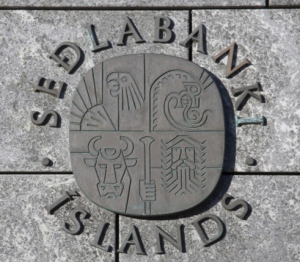The Central Bank of Iceland welcomes the monetary reform resolution

In February we’ve reported here on the great news from Iceland that the Monetary Reform resolution, calling for the establishment of a special commission to “carry out a review of the arrangements of money creation in Iceland and to make recommendations for improvements”, was put on the parliament’s agenda.
Since then reviews by several organisations and economists have been submitted (including one from Positive Money and a few from other members of the International Movement for Monetary Reform).

Now, after a bit of a technical hickup, nine reviews have been published on the Icelandic Parliament’s (Althingi) website.
The following seven were unsurprisingly supportive:
Betra peningakerfi in Iceland,
Ben Dyson of Positive Money in UK,
Klaus Karwat of Monetative in Germany,
Lars Alaeus of Positiva Pengar in Sweden,
Professor Joseph Huber,
Professor Victoria Chick,

The eighth supportive review was from the Central Bank of Iceland (here in Icelandic).
This is a cause for celebration, as the Central bank was critical in its review on similar resolution three years ago at Althingi. Now, in its 3rd paragraph of the review, it states:
„The Central Bank of Iceland sees the discussion on the arrangements of money creation as generally beneficial and therefore does not propose any amendments to the resolution.“
The only review criticising the resolution came from the Icelandic Financial Services Association (IFSA) – in an lengthy 4 page discussion. Following are some key comments on it:
The largest part of its review IFSA spends on describing the deposit insurance scheme of the US and EU. IFSA seem to hold in great affection this bandage of the fractional reserve banking system from the 4th decade of last century.
IFSA admits to its lack of insight by stating „To The Icelandic Financial Services Association it seems these are the ideas first promoted in 1933 by a group of economists at the University of Chicago in the US lead by Henry Simons.“ This is only to admit to their guesswork by saying: „This is actually not stated in the resolution.“
The review is concluded by stating that „The structure of the financial system in Iceland must follow what‘s developed in the European Economic Union.“ However, IFSA does not refer to any European directive or regulation stating Iceland must assume the same process of money creation. In fact, inspection of Betra peningakerfi have not showed that any such requirements exists.
This sole critic of the resolution and its content shows that the opposition to further research of monetary reform is very limited. This gives raise to further optimism towards the matter within Althingi‘s Commission of Economics and Trade going forward and it will be interesting to see its opinion on the matter.
We‘re now to step 5 into establishing a parliamentary committee on reviewing arrangements of money creation in Iceland (according to the procedure of Iceland’s parliament):
1. Agenda setting: The Speaker of Althingi puts the resolution in the agenda
2. First reading: the resolution is debated in plenary
3. Discussion in committee: the resolution would probably be passed to the Committee of Economics and Trade, headed by Frosti Sigurjónsson
4. Review: the committee calls for reviews of the resolution
5. Opinion of the committee: the committee delivers its opinion to Althingi and proposed amendments.
6. Second reading: the resolution is debated at a second plenary reading
7. Voting: Minimum of 50% participation is required. Resolution is passed if majority of votes are „Yes“.